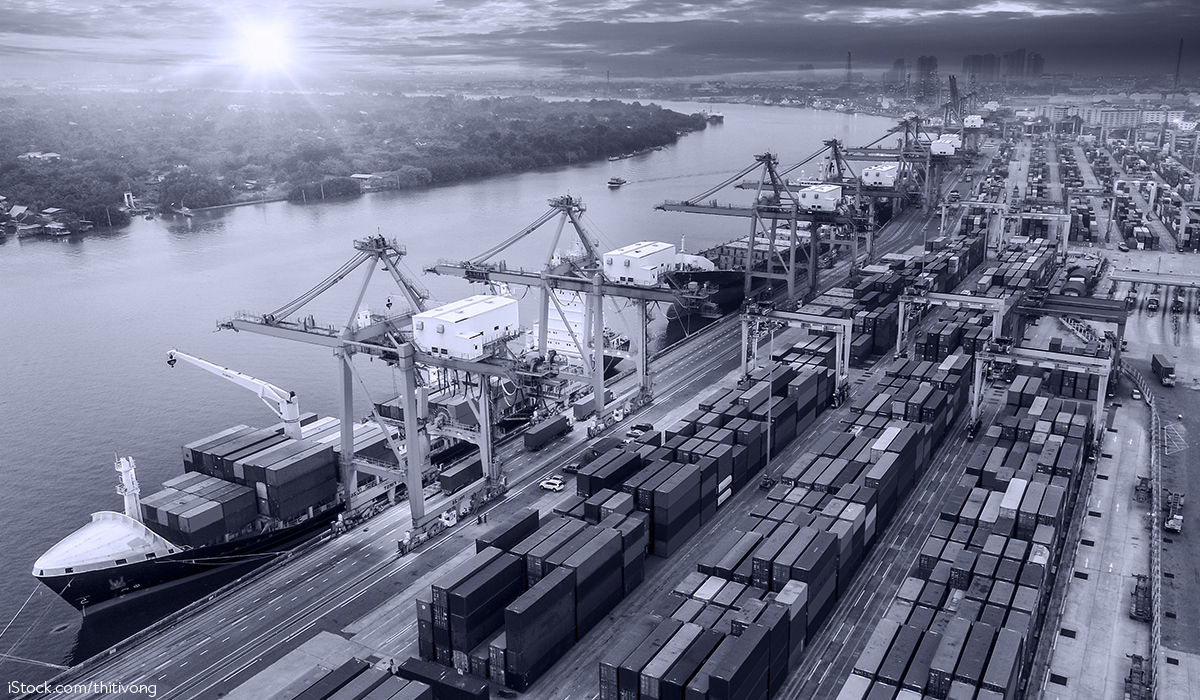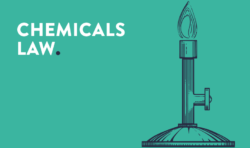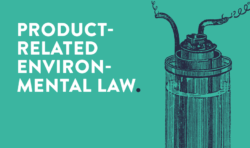Contrary to some nuances in recent months, the EU Commission is now proposing to implement human rights and environmental due diligence requirements in a directive rather than a regulation. This means that the requirements will have to be implemented nationally in each Member State, which for Germany will mean adapting and updating the Supply Chain Due Diligence Act (LkSG), as already indicated in the explanatory memorandum to the Act.
Objectives of the proposal
According to the introductory explanations to the draft, it is intended on the one hand to make a contribution towards a climate-friendly and green economy in the EU and on the other hand to lay down requirements for identifying, preventing, ending or at least minimizing risks to or violations of fundamental human rights in complex, international supply chains. In order to avoid a far-reaching fragmentation of the legal situation in the area of corporate due diligence against the backdrop of numerous initiatives at national level, and in order to thereby create a level playing field for all companies concerned, the EU Commission rightly considers harmonization under European law to be appropriate.
Planned scope of application
According to Art. 2(1) of the draft, the directive is basically intended to have a broader scope of application than the LkSG, which is limited to companies with at least 3,000 (from 01.01.2024 with at least 1,000) employees in Germany. The draft directive sets this number much lower, does not limit the calculation of the number of employees to those employed in the EU and additionally adds the criterion of annual turnover. However, there is no provision for the attribution of employees within affiliated companies. Accordingly, the directive is to apply to the following companies:
- Companies formed in accordance with the legislation of a Member State with more than 500 employees and net worldwide annual turnover of more than EUR 150 million.
- Companies formed in accordance with the legislation of a Member State with more than 250 employees and a net worldwide annual turnover of more than EUR 40 million to EUR 150 million, if at least 50% of this turnover is generated in a so-called high-risk sector. High-risk sectors are, for example, manufacturing/wholesale of textiles, leather and footwear, agriculture, forestry, fishing and wholesale of such products, and various specified activities in the raw materials and metals sector.
- Companies formed in accordance with the legislation of a third country with a net annual turnover in the EU of more than EUR 150 million.
- Companies formed in accordance with the legislation of a third country with a net annual turnover in the EU exceeding EUR 40 million but not exceeding EUR 150 million, if at least 50% of the worldwide turnover of such a company is generated in at least one of the aforementioned high-risk sectors.
With regard to those companies that are not domiciled in the EU but nevertheless fall within the scope of application, it should be noted that according to Art. 16 they are to be obliged to appoint an authorized representative in the EU. This representative is to be available to the competent supervisory authorities as a comprehensively authorized contact person.
However, compared to the proposal of the European Parliament of 10.03.2021, SMEs are basically excluded from the direct scope of the directive. However, this of course still does not mean that SMEs will not come into contact with the new requirements due to pass-through effects in the supply chain. In order to support SMEs in this situation, the draft provides for a variety of options, such as financial, organizational and know-how-building support, which may be implemented by the Member States.
Protected human rights and environmental aspects
According to Art. 3 (b) and (c) in conjunction with the Annex to the Directive, the human rights and environmental aspects to be taken into account in the context of the European due diligence requirements also go beyond the LkSG. The following areas, among others, are included in the new draft directive, but are not explicitly part of the LkSG:
Human rights concerns:
- Freedom of thought, conscience and religion
- Children’s rights as such (outside child labor)
- Rights of indigenous peoples
Environmental concerns:
- Biodiversity
- Washington Convention on International Trade in Endangered Species (CITES)
- Trade in hazardous chemicals (PIC)
- Protection of the ozone layer
However, the present draft directive focuses much less on the law at the respective location than is the case in the LkSG, so that the concrete scope of the protected interests is still very vague. In addition, aspects of good corporate governance (such as the prohibition of bribery, corruption and tax evasion) are not included as requirements to be observed, although this was envisaged in the European Parliament’s proposal.
Relevant definitions
The definition of the supply chain in Art. 3 (g) in interaction with the definitions for a business relationship (Art. 3 (e)) and an established business relationship (Art. 3 (f)) includes the complete upstream and downstream supply chain and basically makes no distinction between the own business operations, subsidiaries, direct and indirect suppliers.
It should be noted that the proposal generally only provides for due diligence obligations in the context of established business relationships and, accordingly, completely negligible parts of the supply chain are to be exempt from due diligence obligations. Establishment is assumed for permanent supply relationships that have a certain intensity and duration, with no further specification. However, as soon as the business relationship with a direct supplier is considered established, this also applies to all indirect suppliers in this relationship (see recital (20).
As in the LkSG, the concept of adequacy plays a central role. The relevant definition is contained in Art. 3 (q) and focuses on the following elements:
- Measure must be suitable to achieve the objectives of the due diligence obligations.
- Measure must be commensurate with the severity and likelihood of a violation
- Measures must be reasonably available to the company
As always, all circumstances of the individual case must be taken into account to determine the appropriateness of a specific measure, so that in the starting point there is a great deal of flexibility for the companies concerned, but at the same time a degree of uncertainty that should not be underestimated.
Due diligence obligations
The due diligence obligations correspond by and large to those already known from the LkSG and range from the obligation to establish due diligence policies in the company and the obligation to identify actual and potential adverse impacts to preventive and remedial measures, which are to be handled dynamically in such a way that they are to be reviewed at least annually and on an ad hoc basis and adjusted if necessary. In addition, the establishment of a complaints procedure and the publication of reports are mandatory. According to recital (15), the directive is not intended to introduce any guarantee obligations, but only obligations to act and make efforts.
Below is a summary of some selected features differing from the LkSG:
- Regardless of whether risks exist or not, the adoption of a Code of Conduct will be mandatory for all directly affected companies (Art. 5 Par. 1 (b)).
- Affected companies with between 250 and 500 employees are only required to address risks in those high-risk sectors in which they operate (Art. 6 para. 2).
- Preventive and remedial measures become mandatory not only when risks or violations have actually been identified, but also when they should have been identified in the course of an adequate risk analysis (Art. 7 para. 1 and Art. 8 para. 1). It should be noted that this obligation cannot be fulfilled logically, because the fight against risks and violations requires their actual identification. A company that fails to identify existing risks and violations can therefore be accused of insufficient risk analysis, but not also of failing to take preventive and remedial measures. This will need to be adjusted in the course of the legislative process.
- In the event that remedial and preventive measures via a direct supplier are ineffective in the case of infringements by an indirect supplier, a company covered by the scope of application shall endeavor to conclude a contract to remedy the violations with the indirect supplier (Art. 7(3) and Art. 8(4)).
- Reporting is to be split into two parts in such a way that companies already required to report under Directive 2013/34/EU are not also to be required to report under the new directive. All companies not subject to reporting under Directive 2013/34/EU, on the other hand, are required to report and publish on the website under the new directive, with the EU Commission still to issue delegated acts on the form and content of these reports.
Combating climate change
One objective not included in this connotation in the LkSG is the obligation of certain companies to take measures to combat climate change and to comply with the related 1.5 degree target under the Paris Climate Agreement. Accordingly, both EU-based and non-EU-based companies with more than 500 employees covered by the scope are to establish a plan to ensure that their respective business model is consistent with the transition to a sustainable economy and the goal of meeting the 1.5-degree target.
In the event that a company has determined, or should have determined, that its own business activities pose a significant risk to the climate, that company shall include emission reduction objectives in said plan.
Civil liability
Contrary to the express exclusion of direct civil liability under Sec. 3(3) LkSG, Art. 22 of the draft directive obliges the Member States to provide for civil liability in the event that a company has failed to comply with its due diligence obligations and as a result a violation has occurred which has led to damage.
In addition, the Member States are required to design this civil liability regime as overriding mandatory provisions within the meaning of private international law, in particular within the meaning of Art. 16 Rome II Regulation. This is intended to ensure liability even if, in a specific individual case, no claim for damages should exist under the foreign law applicable under the circumstances. In such a case, the national mandatory rules must prevail over the applicable foreign law.
Sanctions
As under the LkSG, the directive does not provide for criminal sanctions, but only for administrative fines. According to the European Commission, these should always be based on the turnover of the company concerned, which is not explicitly stipulated for all fines in the LkSG but is derived in principle from the rules of the general Administrative Fines Act. However, the requirement in the draft directive can also be interpreted to mean that there should not be a rigid upper limit for fines, but that a certain percentage of the individual turnover should always be used as a benchmark.
If the latter interpretation were to prevail, considerably higher fines would have to be expected, especially for companies with high turnovers, as would be possible under the purely national LkSG.
Further procedure
Following the formal initiation of the ordinary legislative procedure, the next step is for the European Parliament and the Council to act. Since the Commission’s draft deviates considerably from the European Parliament’s proposal in a number of points, extensive amendments are to be expected from this direction, which could prolong the legislative process enormously. The same applies, of course, to the already existing and certainly still increasing resistance from the business community. In any case, once the directive has come into force, it will have to be implemented at national level in the member states, which will be given a maximum of two years to do so.
Proposal and Annex are available on the website of the EU Commission.
Do you have any questions about this news, or would you like to discuss the news with the author? Please contact: Michael Öttinger





